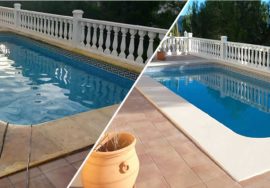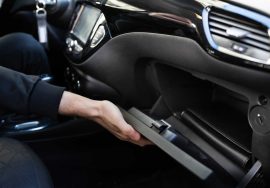
What Nobody Tells You About Moving To Spain
Spain is certainly full of surprises. VillaMia has put together a tongue-in-cheek list of the quirks and customs which took us by surprise when we moved to the Costa Blanca.
Spanish mealtimes and how often they eat
The Spanish eat five times a day. And they have special words for their mid-morning and mid-afternoon snacks:
- Breakfast – desayuno, which could be a simple tostada – toast with ham, tomato or olive oil
- Elevenses or brunch – almuerzo, which could be a sandwich (bocadillo) or pastry
- Lunch – comida. Time permitting this would be a three-course meal
- Afternoon tea – merienda. This could be another bocadillo or a great excuse to enjoy tapas. The Spanish need an afternoon snack because they eat dinner so late
- Dinner – cena is similar to lunch and is eaten any time from 9pm to midnight (especially in the hot summer months)
Yes, you can have a brandy at breakfast
You’ll often see people, particularly retired men, enjoying a glass of brandy alongside their coffee in a bar while you’re on your way to work.
Everyone talks at the same time
When you’re a newbie in Spain and trying to learn the language, you feel that the Spanish talk fast. Not only that, they all join in a conversation at the same time. So you need to understand three or four people talking at the same time if you want to follow a conversation.
How much they can talk about football
Football is huge in Spain. You’ll soon be drawn into a conversation about Real Madrid or Barcelona. There are even daily newspapers dedicated to sport, particularly football, the two biggest papers being Marca and AS, where you can read pages and pages about these two huge clubs every day.
How late the Spanish go out
Just when we’re thinking of getting into your PJs, the Spanish are getting ready to go out. We love live music and dancing but the band doesn’t start until midnight. That’s the start time, so what time does it end?
Until Covid, there was no such thing as personal space
The Spanish are a sociable lot. You’ll find they’ll huddle around you in queues or pull up a stool very close to you at the bar.
Talking of queues….
Forget this polite ‘forming a queue’ system that works so well in the UK. The queue is far from orderly in Spain but it works. Sometimes you need to get a ticket and your number will be called out when it’s your turn – so you don’t need to stand in a line. Other times, when someone walks into the bank or post office, for example, they will ask who is the last person in the queue. Then they know when it’s their turn.
How many fiestas there are
When we first moved to Spain, we’d often turn into a street and find a fiesta going on. Every month, there’s a fiesta celebrating the town’s patron saint, Moors and Christians parades, carnival, Easter, bull running, Three Kings, San Juan, fallas, hogueras, burial of the sardine, etc. Plus various music festivals and small celebrations in each neighbourhood.
How to use roundabouts
This topic comes up time and time again. Driving on roundabouts in Spain is certainly different to back home. We’ll let our friends at the N332 group explain it. https://n332.es/exiting-roundabouts/
How friendly everyone is
People will say ‘Hello’ in the street. They’ll chat to you while you wait for your bus or train. They’ll definitely talk to you in a bar. It’s lovely to feel welcomed. And a great opportunity to practise your Spanish.
Bureaucracy and red tape
You would not believe how many pieces of paper you need to get your NIE, TIE or residency in Spain. And how you need your NIE/TIE number to do anything and everything from buying a mobile phone to accepting parcels from the postman or woman. You’ll soon know your NIE/TIE number off by heart because you have to recite it so often. And you need photocopies of everything when dealing with anything official.
How diverse the country is
Each province has its own customs, laws and even languages. Galicia is very different from the Basque country. Valencia is very different from Andalusia. Step over the border to another province and you may feel like you’re in another country. The food is different, The weather can be different. They have different flags, laws, customs.
Let us know what quirk or custom surprised you most about living in Spain.
If you are looking to move to the Costa Blanca North area, VillaMia would love to help you – info@villamia.net or call 96 579 4139
VíllaMía Office
Jávea (Arenal)
03730 Jávea,
Alicante, Spain








